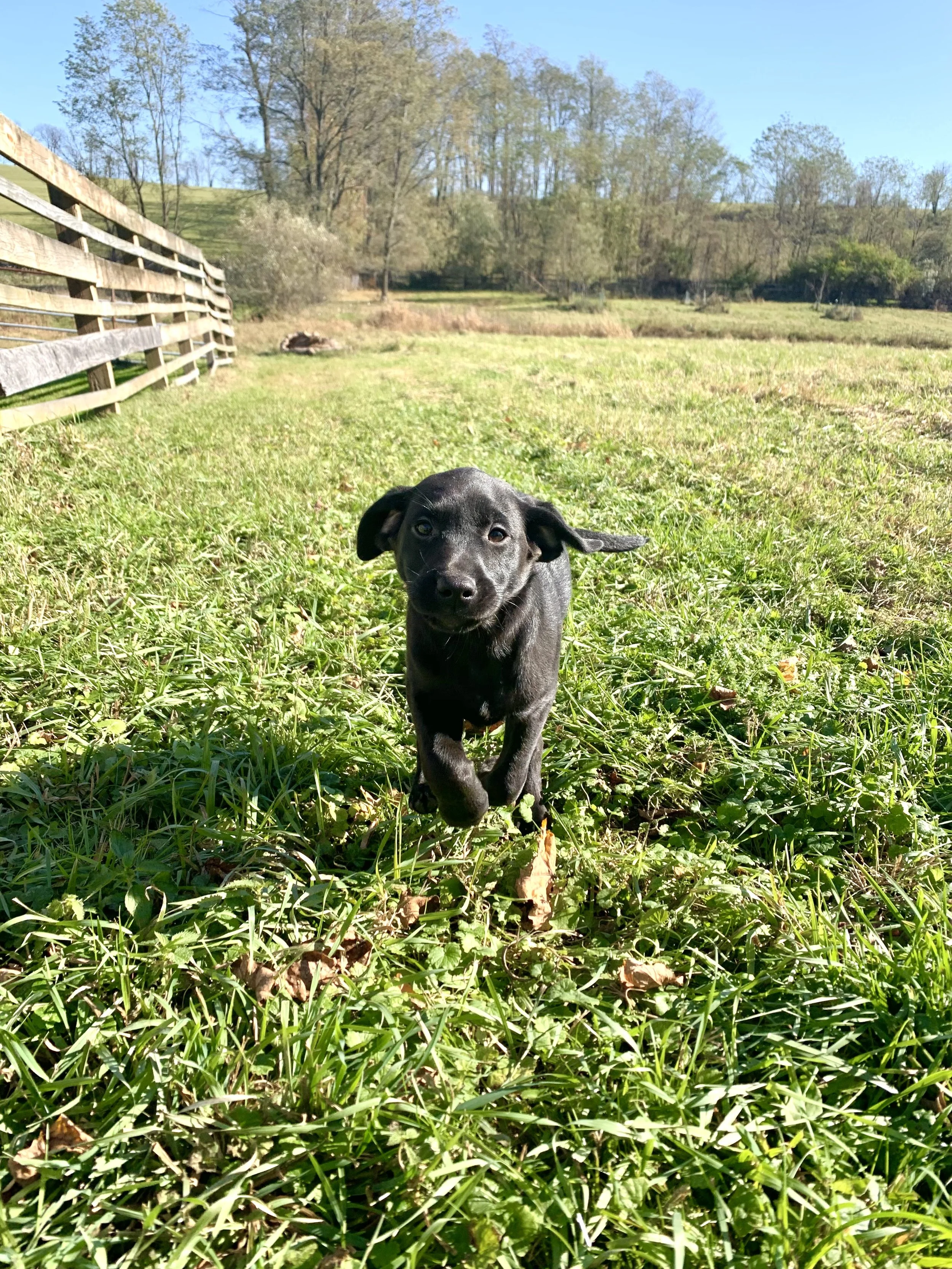Puppy Head Start
for Dogs 2 to 6 Months
(4-Week Minimum. Some issues/situations require up to 12 weeks. Please inquire.)
Introduction
Our Puppy Head Start Program is designed for puppies aged 2-6 months. This program focuses on establishing strong foundational obedience and behavioral skills to set up your puppy for a lifetime of success as both a pet or a working dog.
We provide professional training that is personalized, taking into consideration the unique needs of each dog and their owner. Our methods are firm yet gentle, with an emphasis on consistency, patience, and positive reinforcement.
Program Overview
Duration: Minimum of 4 weeks
Objective: To establish obedience foundations, address behavior issues, and prepare puppies for further advanced training as needed.
1. Initial Consultation
Purpose: Understand the puppy’s background, health, temperament, and any specific behavioral challenges.
Owner Interview: Discuss the owner's expectations, lifestyle, and aspirations for the puppy's future.
Training Assessment: Determine the best training methods suited to the puppy's needs and the owner's goals.
Custom Training Plan: A bespoke training program tailored to address specific needs and objectives.
2. Obedience Foundations
Basic Commands:
Sit / Stay
Place
Down
Heel (on and off lead)
Recall (voice and whistle)
Leash Training: Teach puppies to walk politely on a leash, promoting calm and controlled behavior while walking.
Impulse Control: Introduce exercises to help the puppy learn self-control in various situations (e.g., waiting for food, sitting calmly when meeting new people or dogs).
Name Recognition: Teach the puppy to respond to their name, helping with recall and communication.
3. General Manners and Behavior
Polite Greetings: Teaching puppies how to greet people and other animals in a calm and friendly manner, minimizing jumping or excessive excitement.
Biting & Nipping Control: Addressing common puppy behavior issues such as biting or nipping during play and introducing appropriate alternatives like chew toys.
Housebreaking: Reinforce good potty habits and create a routine for indoor and outdoor bathroom breaks.
Crate Training: Introducing puppies to crate training, promoting comfort and safety while preventing destructive behavior.
4. Socialization
Positive Exposure: Gradual exposure to a variety of environments, sounds, and people to foster confidence and prevent fear-based reactions.
Canine Interaction: Controlled playtime with other puppies or well-behaved adult dogs to promote good social skills and acceptable play behavior.
Public Outings: Short trips to pet-friendly locations to improve confidence and reinforce good behavior in distracting environments.
5. Behavioral Modifications
Addressing Fears & Anxiety: Work on desensitization to common stimuli (e.g., loud noises, unfamiliar people) to help puppies overcome any anxieties they may develop.
Destructive Behavior Prevention: Redirecting common destructive behaviors like chewing on furniture, shoes, or other inappropriate items.
Barking: Address excessive barking and teach appropriate times for vocalization.
6. Introductory Gundog Work (Optional)
For puppies with potential for gundog or working dog training, we can introduce basic gundog commands and exercises, such as:
Retrieve (retrieve toys or objects)
Focus and drive exercises (directing attention and following specific tasks)
Whistle commands.
Introduction to cover, scents, and confidence-building exercises.
Note: This section is optional and only applies to owners who are looking to pursue gundog training.
7. Ongoing Support
Weekly Progress Updates: Regular updates to the owner regarding the puppy’s progress, areas that need attention, and tips for reinforcing training at home.
Owner Training: Educating owners on how to maintain consistent training at home, ensuring that puppies continue to develop good habits and obey commands.
Post-Program Guidance: After completion of the program, continued access to advice and tips for managing behavior and advancing training if needed.


